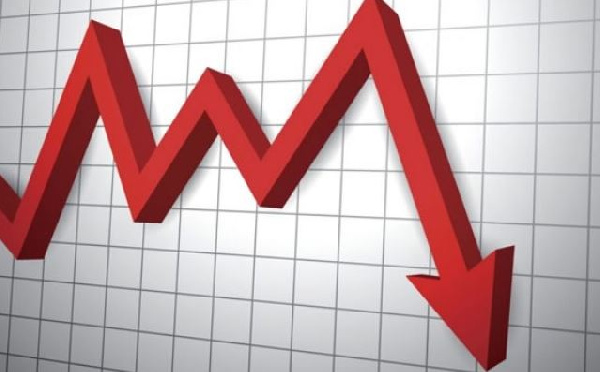Inflation for the month of September was 7.6 per cent, the Ghana Statistical Service (GSS) has reported.
According to the national data compilation body, although the rate indicated a decline compared to the 7.8 per cent recorded in August 2019, prices have not dropped. Instead, prices have gone up at a relatively smaller rate.
Announcing the rate at a news conference in Accra, the Government Statistician, Professor Samuel Kobina Annim, explained that “the 7.8 per cent that we recorded in August and the 7.6 per cent that we are reporting for September 2019 does not mean that the prices of commodities have gone down. This simply means that in both August and September, prices went up but the only difference is that the rate of increase in prices for September 2019 is relatively slower.”
Professor Annim said the September rate was largely driven by non-food inflation which recorded a rate of 8.5 per cent, 0.3 percentage points higher than the rate of 8.2 per cent recorded in August.
“The year-on-year inflation rate as measured by the Consumer Price Index (CPI) was 7.6 per cent in September 2019, down by 0.2 percentage points from the 7.8 per cent recorded in August. Alcoholic beverages, tobacco and narcotics and housing, water, electricity, gas and other fuels were the key driver of September’s inflation,” he said.
Main drivers
The food and non-alcoholic beverages group recorded a year-on-year inflation rate of 8.5 per cent in September 2019.
Prof. Annim noted that six subgroups recorded inflation rates higher than the group’s average rate of 8.5 per cent.
The non-food group recorded a year-on-year inflation rate of 7.0 per cent in September 2019. Alcoholic beverages, tobacco and narcotics (12.2 per cent), Housing, water, electricity, gas and other fuels (10.0 per cent), transport (8.7 per cent) and recreation, sport and culture (7.5 per cent) were the key drivers of the non-food inflation in September.
Regional level
At the regional level, Prof. Annim noted that the year-on-year inflation rate ranged from 3.8 per cent for the Eastern Region to 11.8 per cent for the Greater Accra Region.
“Four regions – Greater Accra, Central, Upper West and Volta — recorded inflation rates above the national average of 7.6 per cent.
The Eastern Region recorded the least inflation rate of 3.8 per cent,” he said.
Source: Graphic.com.gh







